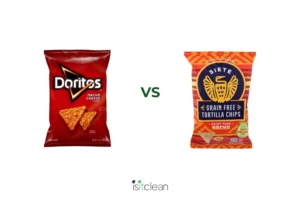
Acesulfame potassium is a zero-calorie sweetener that is added to many sugar-free…



Vitamin A acetate (retinyl acetate), a natural form of vitamin A that can be produced synthetically, is utilized as a food additive for its nutritional benefits and stability. It is derived from either plant or animal sources and produced through a chemical process that involves the esterification of retinol (pure vitamin A) with acetic acid. This reaction yields vitamin A acetate, which is used for fortifying foods. It is often added to dairy products, cereals, and baked goods.

Vitamin A acetate as an additive in foods can help ensure adequate vitamin A, which is necessary for many aspects of health, including eyesight, liver function, and improving iron status. Very high doses of vitamin A may lead to toxicity.
Health is like a bank account, certain ingredients make a deposit into your health bank, meaning they add to
your health. Certain ingredients withdraw from your health bank. We want health promoting ingredients in our diet. To keep things simple, we rate ingredients on a green, yellow, red scale:

It is naturally occurring in food and has no harmful effects on the body. It is real food. It is health promoting.

It goes into one or more of the below categories

It is known to have a harmful effect on the body (ex. All food colorings, Natural Flavors, MSG, Potassium bromate, aspartame, artificial flavors)



The Food Showdown: Popcorners flavors
Ingredient Rating: Canola oil – is it bad for you?
Clean Consuming: Nourishment for your

We have accomplished so much in just 1 year since our launch in March of 2023! We now have 10,000

The Nacho Chip Food Showdown, is Tapioca Starch safe in food? and a must-see documentary on America’s food system.
Stay in the know with the latest ratings, articles, and our newsletter, The Dirt.